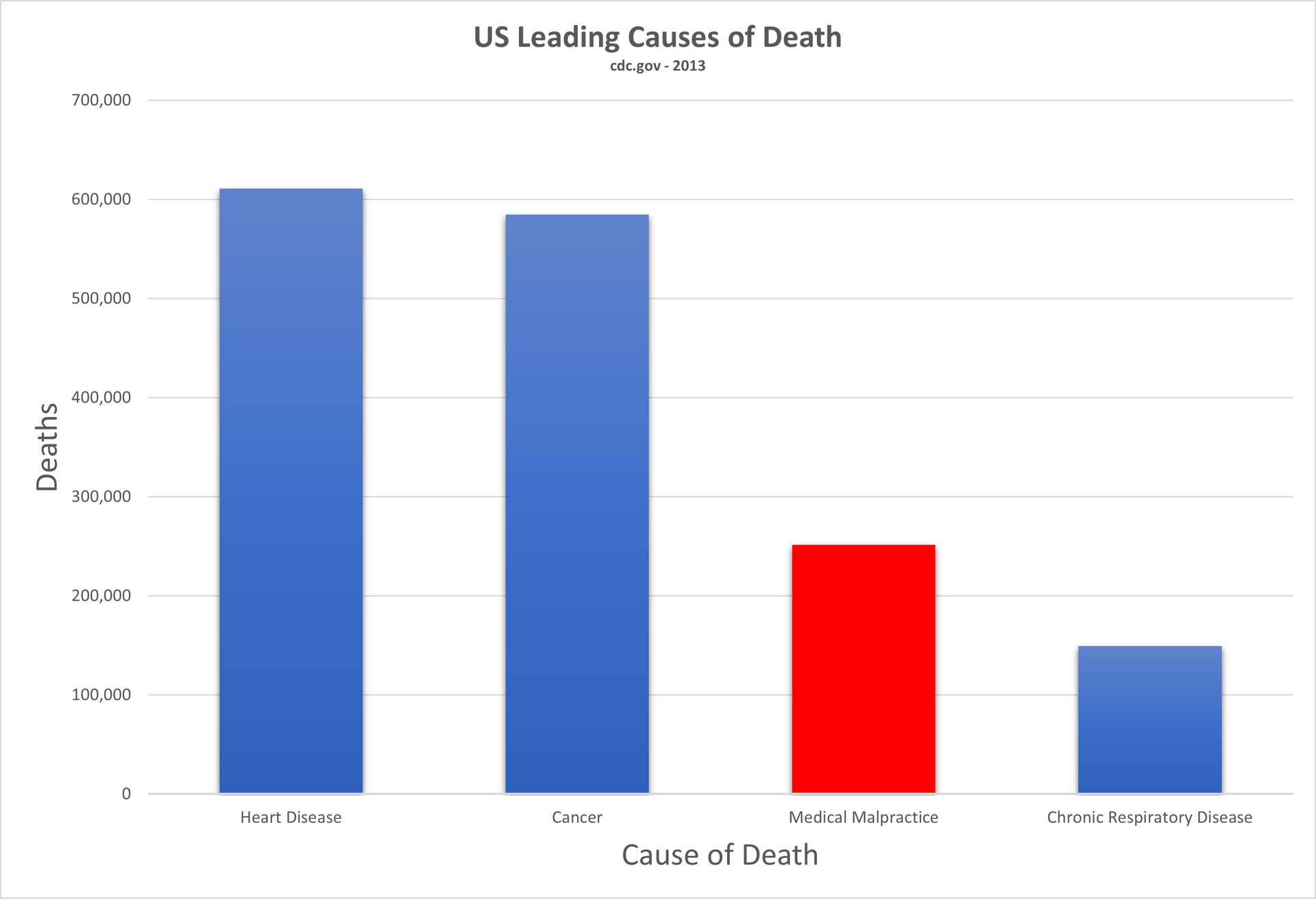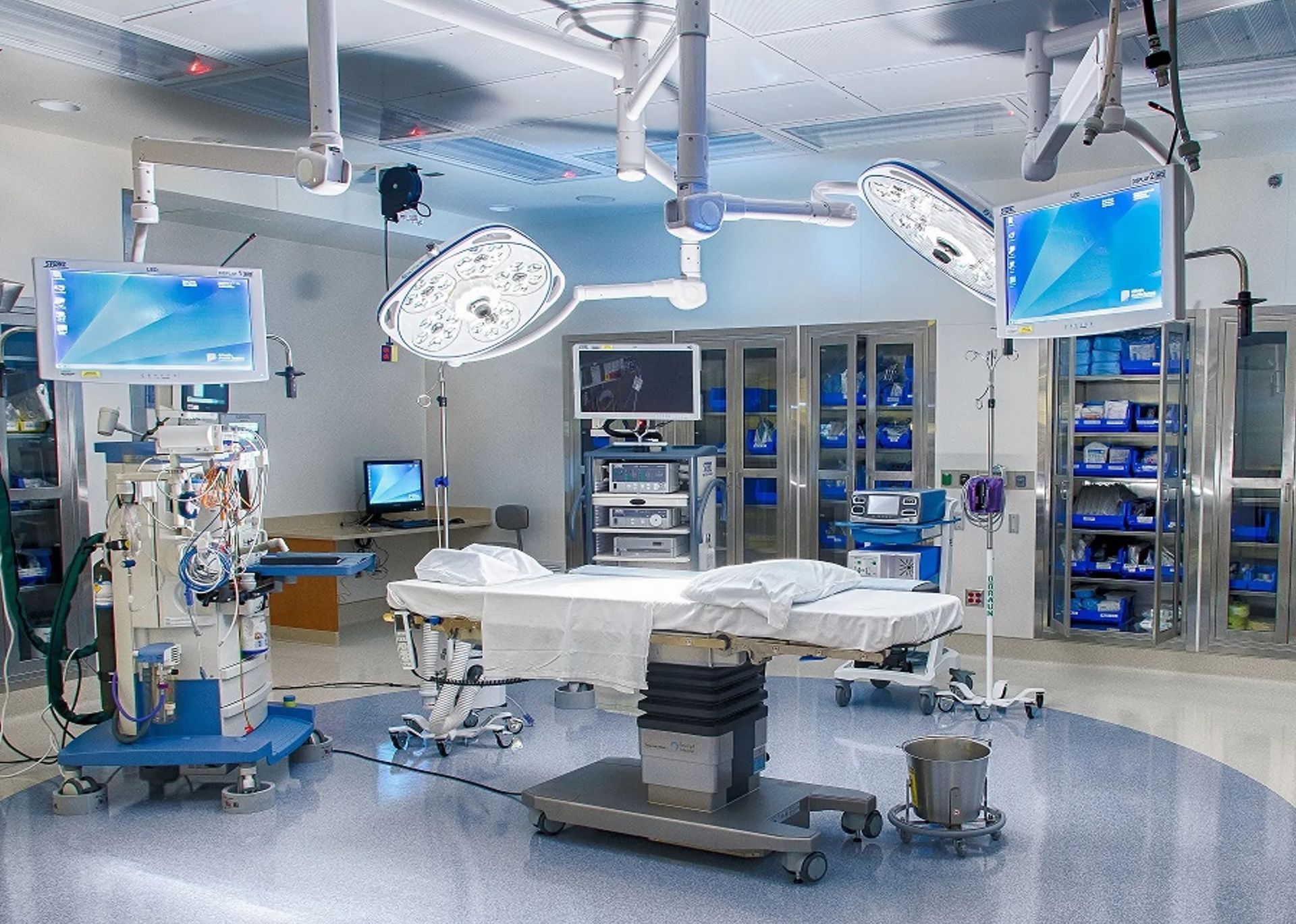The Best Hospitals
Surgery is not Routine
"Recent studies of medical errors have estimated errors may account for as many as 251,000 deaths annually in the United States, making medical errors the third leading cause of death."
Your Health Care May Kill You: Medical Errors
James G. Anderson, Kathleen Abrahamson

Medical errors now account for 9.5 percent of all deaths in the U.S.
The skill of your surgeon is the best predictor of a successful surgery. However, the environment where the surgery is performed, and the standards of that facility also affect rates of surgical complications such as infection and death.
Patient safety standards, technology implementation, and safety culture vary between hospitals. Learn about your surgical facility before your surgery.
Studies on the Importance of Hospital Standards
Surgical Site Infection: Re-assessment of the Risk Factors
O Isik, E Kaya, H Z Dundar, P Sarkut
1 out of every 11 patients of high risk surgeries develops an infection
1 out of every 25 patients admitted to a hospital develops an infection
Anesthesia Mortality
O C Phillips, L S Capizzi
Since the first report in 1846 on the use of anesthesia for a surgical procedure, deaths have occurred with practically every agent and technique used. Those mishaps of which we are aware are probably just a small segment of those that have actually occurred, since presently there is no widely used method for identifying anesthesia-associated deaths.
Extrapolating from data from community anesthesia study committees and from population and operative figures, we can estimate that there are over 5,000 deaths associated with anesthesia in this country each year.
Journal of Clinical Anesthesia
Repeat gram-negative hospital-acquired infections and antibiotic susceptibility: A systematic review
Mansi Agarwal, Stephanie Shiau, Elaine L. Larsona
Over 648,000 patients in US hospitals develop hospital-associated infections (HAIs), with approximately 75,000 of those patients dying due to related complications each year.
Hospitalized patients who experience repeat HAIs are understudied yet represent an increasingly important group in the effort to slow the spread of antibiotic resistance. Repeat infections are due to an infection with a new strain of an organism, an infection with the same organism due to environmental or bacterial persistence, or from a relapse of the prior infection-causing organism. All three may result in patients developing future drug resistant infections.
Journal of Infection and Public Health

Hospital Research
Is Your Surgery Taking Place in an Acceptable Setting?
- Insider Review of Your Hospital
- Hospital Safety Grade
- Based on 22 evidence-based measures of patient safety
- Clinical Quality Strength Ranking
- Key Clinical Metrics
- Technology and Innovation Overview
- Comparison with Other Hospitals in Your Area

